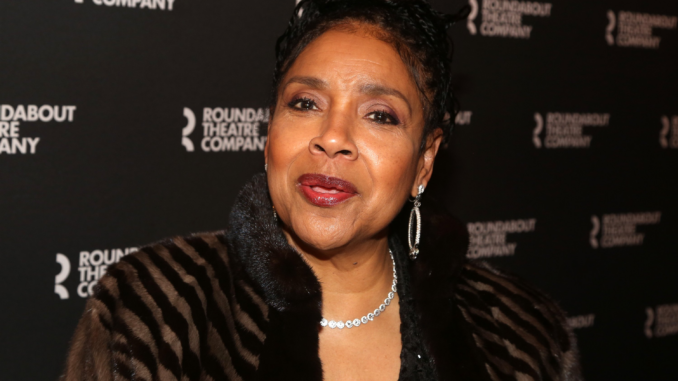
When The Cosby Show first aired in 1984, it wasn’t just another sitcom—it was a groundbreaking moment in television history. The show, created by Bill Cosby, quickly became one of the most influential TV shows of its time. It shattered the conventional stereotypes of African-American families that were often portrayed on screen. But it did more than that: The Cosby Show introduced a new model for television families—one that was loving, successful, and multidimensional, which was revolutionary for audiences at the time.
A New Kind of Family
Before The Cosby Show, the portrayal of African-American families on television was often confined to negative stereotypes. Shows like Good Times and Sanford and Son frequently depicted African-Americans as struggling with poverty, crime, and limited opportunities. In contrast, The Cosby Show presented a different kind of family: the Huxtables. Dr. Heathcliff Huxtable, played by Bill Cosby, was a respected obstetrician, while his wife, Claire Huxtable, played by Phylicia Rashad, was a successful lawyer. Together, they raised five children in a beautiful Brooklyn home, showing the world that Black families could be both successful and relatable.
The portrayal of the Huxtables was revolutionary because they were a reflection of Black excellence—professional, educated, and deeply invested in their children’s futures. The show introduced a new narrative: it was possible for Black people to achieve success and live fulfilling lives without resorting to stereotypes. Dr. Huxtable was a role model for fathers, showing tenderness, wisdom, and humor. Claire was an empowering figure for mothers, balancing her career and her role as a loving parent. This depiction was a stark contrast to how African-Americans were traditionally shown on television.
Breaking Down Barriers
One of the most significant aspects of The Cosby Show was its ability to break down barriers. For many viewers, especially African-American audiences, the show offered a new sense of pride and representation. For the first time, viewers saw a Black family who wasn’t defined by their struggles but by their success, love, and intelligence. This was particularly meaningful during a time when racial tensions were high and mainstream media representation of Black people was limited.
The success of the show also opened doors for other Black actors and creators in Hollywood. It proved that a primetime sitcom could not only feature a Black family but also appeal to a wide, diverse audience. In doing so, it paved the way for other African-American-led shows, such as A Different World and The Fresh Prince of Bel-Air. In fact, The Cosby Show helped launch the careers of many of its young stars, including Lisa Bonet, Malcolm-Jamal Warner, and Tempestt Bledsoe, who went on to become household names in their own right.
Cultural Impact
Beyond its impact on television, The Cosby Show had a cultural influence that extended into real life. The show was a beacon of positivity, showing viewers that it was possible to be both successful and grounded in your values. Dr. Huxtable’s character, in particular, became a symbol of what it meant to be a loving, responsible father. His calm demeanor, sense of humor, and ability to impart wisdom to his children resonated with audiences and set a new standard for fatherhood on television.
For young African-Americans watching the show, the Huxtables were an example of what they could aspire to be. It showed that being a doctor, lawyer, or successful professional wasn’t just for a select few—it was within reach for everyone. The show also tackled important social issues, such as racism, drug use, and the importance of education, all while maintaining its lighthearted, family-friendly tone.
The Impact on Television Sitcoms
The Cosby Show forever altered the landscape of television sitcoms. It proved that an African-American family could be at the heart of a successful, mainstream show without relying on tired stereotypes. It also demonstrated the importance of writing strong, multidimensional characters that viewers could relate to and care about, regardless of their race. The show’s success set a new precedent for the kinds of sitcoms that could make it on primetime TV.
Moreover, The Cosby Show introduced a level of sophistication and maturity rarely seen in sitcoms at the time. While it was funny and lighthearted, the show never shied away from addressing important topics. Episodes often dealt with serious issues—such as education, racism, and marriage—with depth and respect, making it not just a show about laughs, but one that offered valuable life lessons.
The Enduring Legacy
Even though The Cosby Show ended in 1992, its legacy lives on. The show remains a touchstone for discussions about representation in media, fatherhood, and the portrayal of African-American families on screen. It laid the groundwork for the kinds of shows that followed, proving that diversity and excellence in television could go hand in hand.
It’s difficult to imagine the world of television today without the cultural and social impact of The Cosby Show. The show didn’t just entertain—it inspired, educated, and changed the way we see families, race, and success in the media.
For fans of the show, The Cosby Show remains a beloved classic. For newcomers, it offers a glimpse into a television era where one show had the power to redefine an entire genre. It was more than just a sitcom—it was a cultural phenomenon, and its influence can still be seen in shows that strive to continue breaking barriers.
